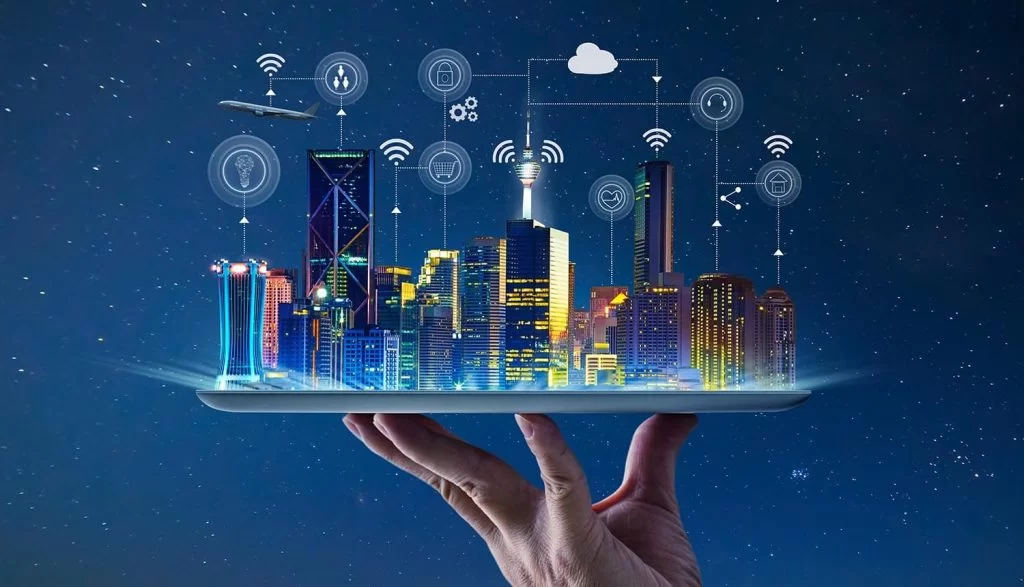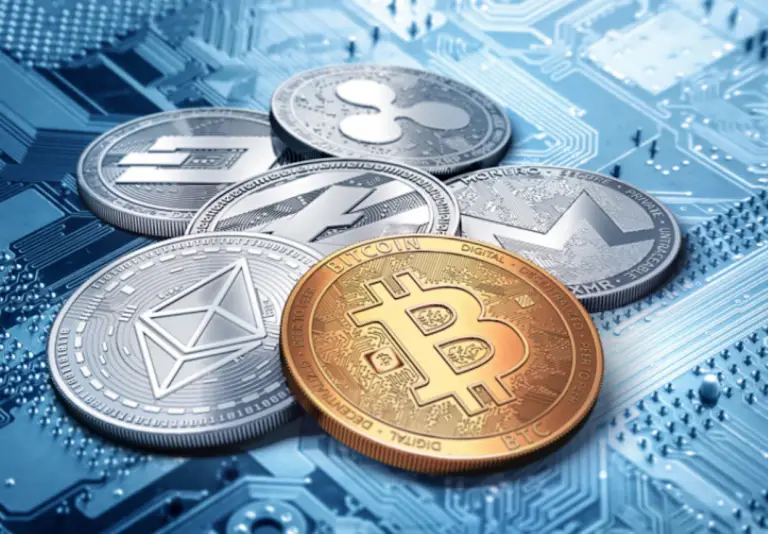Does the Metaverse need to be on a blockchain?
Blockchain is defined as a shared immutable ledger that enables the process of recording transactions and tracing assets in a business network. All kinds of businesses run on information. A business is managed smoothly when information is accurate and received faster.
Blockchain technology is preferred in distributing this information based on its capability to provide immediate, shared and completely transparent information stored on the immutable ledger that cannot be easily accessed by outsiders. All in all, blockchain generates trust, transparency and efficiency as it represents a shared record of the truth.
The concept of metaverse, which precedes the rise of blockchain technology can in fact exist without relying on blockchain technology although the integration of blockchain would aid in the creation of a reliable virtual universe.
The metaverse is described as the next evolution of the internet. It is a single, shared, immersive, persistent, 3D virtual space where humans experience life in ways they could not in the real world.
But why do we need a new internet? To answer the question above, yes the metaverse can exist without blockchain technology but we need blockchain as one of the tools that can allow the metaverse to exist and transcend potentials.
Why do we need a new internet?
From its inception in the 90’s, the internet has immensely impacted and revolutionized culture, communication, commerce and so many areas of living. the internet is a progressively crucial aspect of our everyday life. It is a global network of billions of computers and other electronic devices that has aided efficiency in accessing of information, communication and so much more.
However, the inadequacy of our current internet cannot be overlooked. Problems such as incentives being tilted towards a limited group of stakeholders, creators getting exploited with little or no acknowledgment to their contents, users having little ownership and control over their data, cybersecurity threats, limited scalability and outdated infrastructure. Can the new version of the internet solve these problems?
The internet has been created and popularized through applications owned by big tech companies such as Meta, Google, Amazon, Instagram etc. These applications employ engaging features and techniques to attract users and monetize their activities on these platforms.
Regardless of the ability to monetize value, these tech companies offer users a very insignificant piece of the value generated while the stakeholders and the companies amass trillions of dollars. The new internet offers a more inclusive value accumulation.
Also, the current internet infrastructure may not be optimized for emerging technologies such as Internet of Things (IoT), artificial intelligence, virtual reality, and blockchain.
Developing a new internet could prompt better integration and support for these developing technologies. Because of how centralized the current internet is, we see exploitation of content creators by these platforms and intermediaries.
The creation of a more creator-friendly platform and internet is needed to remedy the situation. Permission to control data and network is denied the users, we see this evident where a user would be required to build his network from scratch when he changes from Instagram to Twitter.
The creation of Metaverse is the solution to all these lapses. Metaverse has the capability of supporting interoperability between different virtual worlds, where one can easily glide across virtual platforms without fear of their data being compromised.
Why would blockchain fix the internet?
According to some experts, blockchain technology might determine the direction of the internet in the future.
The current internet has evident challenges and lapses which many believe the potential of blockchain would resolve. Blockchain has several leverages over the conventional manner of conducting online transactions. The internet controls numerous data transactions per second. The blockchain infrastructure being considered as the single most important technology for the 21st century, is still in its infancy. Notwithstanding this, blockchain is not only an infrastructure layer but also an economic layer. These economic structures are believed to potentially resolve the challenges of the current internet.
Blockchain would be a vital factor in creating the Metaverse (the new internet). In a blockchain-based space, the tokenomics of a metaverse platforms permits more inclusive incentives. From the viewpoints of both the shareholder’s governance token and the user’s utility token, the metaverse applications offer an all-inclusive feature as long as participants keep adding value.
Another basic design construct of the Metaverse is nonfungible tokens (NFTs). NFTs are secured by the Ethereum blockchain and offer value permanence. NFTs use blockchain technology to create ownership and authenticity of a unique item or asset. NFTs allow users not only to create, buy, and sell Metaverse items but to also accrue ecosystem credentials in the form of “soul-bound tokens” (a new non-transferable, public-verifiable digital token).
By creating a decentralized tamper-proof system for storing and handling data, blockchain could deliver a more secure, proficient, verifiable and cost-effective way of handling digital information and thus, totally change how we use the internet. The current internet is regularly under surveillance, and user data is constantly tracked and gathered by organizations, governments, application developers etc.
A blockchain-based solution will replace the current internet giants with a decentralized, peer-to-peer network of providers. Simply put, the basic behind it is that users own their credibility and network, not the platforms or central authority.
Blockchain challenges in delivering the Metaverse
Despite the groundbreaking abilities of blockchain technology to addresses several challenges and offer potential solutions in several industries, it is important to note that implementing a completely functional blockchain-based metaverse includes addressing extra technical and logistical considerations.
Blockchain networks can be slow and ineffective because of the high computational requirements needed to authenticate transactions. Due to the constant increase of users, transactions, and increase of applications, the ability of blockchain networks to process and verify them in a judicious way becomes stressed. This makes the network quite slow for applications that require fast transaction processing speed.
Among the challenges of blockchain are scalability, interoperability, and security. The best chains with meaningful user bases can handle only about 50,000 transactions per second. The internet has been known to have millions of data exchanges per second in messages, tweets, emails etc. This appraisal assumes that data exchanges in a metaverse must be on-chain.
The economic features will appropriately take the stage to build new Metaverse-based prototypes for the future as cryptographic techniques like zero-knowledge Rollups improve at tackling scalability challenges.
Another crucial challenge is the ability of different blockchain networks to communicate and relate with each other. There are currently several blockchain platforms with their unique protocols and standards which do not go well together. This may lead to inefficiencies as individual and organizations may need to navigate multiple platforms. Interoperability challenge is particularly connected to bridges used to transfer value from one blockchain to another.
Although it is an ample chance within Web3, interoperability is also a susceptibility that needs to be addressed. Many cyber-attacks on Web3 platforms have ensued through these bridges. Examples include, the Ronin bridge attack and the Solana wormhole bridge attack. These blockchain infrastructure layer issues keep coming back to taunt the ecosystem. One of the current challenges is creating a sustainable economic model of the Metaverse.
There have been several unsuccessful economic models that have informed and stimulated new models and economic approaches. Regardless, innovators in this area are at least a phase away from detecting a sustainable model. Lastly, user experience should be upgraded and refined to attract more users. VR hardware and the Web3 onboarding user experience need to be more smooth in order to entice die-hard gamers, creators and users into the Metaverse.
So, is blockchain ready to take on the Metaverse journey?
In essence, the ideal metaverse must be on blockchain rails, which orders inclusive incentives positioned around creators and users while it continues to provide immersive and smooth virtual experiences. Although blockchain is not the only technology driving the metaverse, it’s benefit is that it offers major infrastructure and mechanisms to aid the development of the metaverse, thus fostering a more open, secure, and decentralized virtual universe.
The metaverse is not just about the experiential aspects, there is also the economic ecology too. It is important that the financial incentives be placed around the real value creators which include the content creators, regular participants who interact and perform transactions on the platform. while the prospective of the economic model are exhilarating, and a lot of positive signs of these prospects have materialized, there are major technical challenges to overcome. The shortages in user experience need to be tackled too.
As blockchain significantly develops, more hybrid models would emerge, where Web2 elements bring scalability and user experience, and blockchain takes care of incentivizes. A totally scalable on-chain Metaverse may appear impossibly perfect now, but it would be the ideal way to build the future internet. blockchain technology is the relevant and requisite enabler envisioned to enforce accountability of contents and transactions into the digital ecosystem. Summarily, blockchain technology is regarded as the soul of the metaverse since it can maintain the seamless economic operation of the metaverse.








